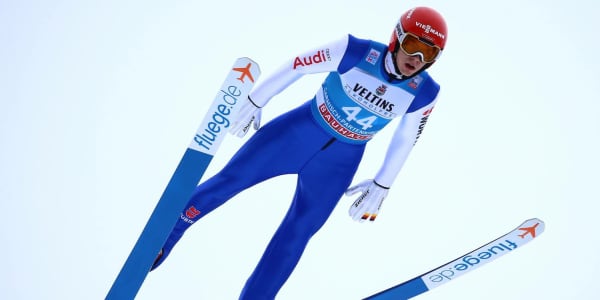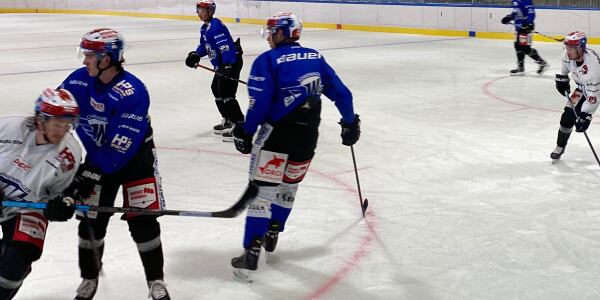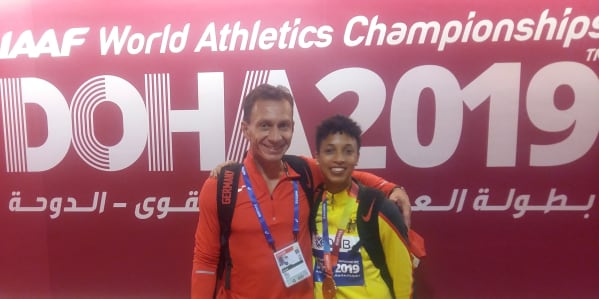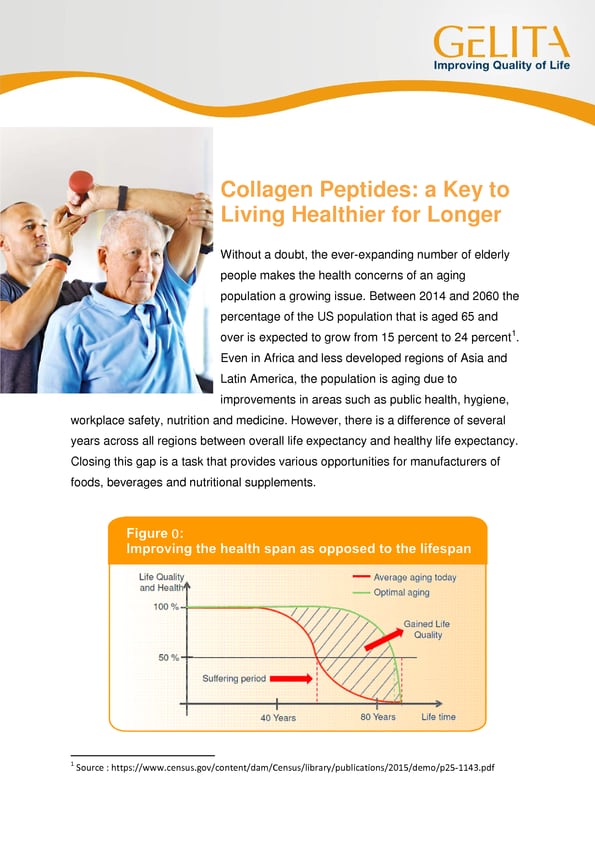BCPs proven to support the White Tissue and ensure rapid return to competition
No one understands better the importance of strong tendons for physical performance, endurance, power and speed than athletes. Yet intense training often takes its toll, and can damage the connective tissue, such as muscles and ligaments. Unfortunately, injuries like these are common in both amateur and professional sportspeople, and can have a major impact on their ability to train and compete. But in order to treat – and even prevent – these injuries, it’s important to understand how and why they occur.
The main structural component of the various connective tissues in mammals is a protein called collagen. Comprising 25–35% of the body’s total protein content, it’s the most abundant protein in humans and, in the form of elongated fibrils, is mostly found in fibrous tissues – so-called White Tissue – such as tendons, ligaments, bones, joints, the muscle fascia and skin. Supplementation with collagen peptides stimulates the respective cells to produce collagen and can therefore help to reduce stress-related tissue problems.
Nutritional intervention
GELITA’s TENDOFORTE is a proven nutritional intervention for tendon and ligament problems, contributing to both performance and a faster return-to-training after exercise.
It contains specific Bioactive Collagen Peptides (BCPs) which have been proven to stimulate the RNA-expression and biosynthesis of collagen, proteoglycans and elastin in Achilles tendons. Furthermore, an Australian study1 has shown that subjects with long-term symptoms of chronic Achilles tendinopathy were able to return to running within three months when supplementing with TENDOFORTE , and were able to keep running for the remainder of the trial period.
Not only have the effects of these BCPs long been scientifically proven; there are also a number of sportspeople who can attest to the benefits TENDOFORTE has on regeneration and the overall health of their ligaments and tendons. Three professional athletes recount their personal experiences.
Leap of faith
Ski jumper David Siegel, 24, is one of Germany’s most promising winter sports talents. And even now, after eight years of training and competing in some of the world’s biggest events, the adrenaline rush is still very much a driving force in his career.
Yet, as with most sporting success stories, this one also has its lows. Probably the biggest setback for David occurred during the 2019 World Cup. While landing his second-round jump, he fell

and tore his ACL (anterior cruciate ligament). He also injured the medial collateral ligament and meniscus of his right knee. These severe injuries meant that he had to drop out of the tournament and undergo surgery, forcing him to miss the rest of the season and the following one. So when his doctor introduced him to GELITA’s TENDOFORTE, David and his coach decided to give it a go.
David began taking a 10g daily dose of TENDOFORTE to complement his regular physiotherapy. He quickly began to notice improvements in both the movement and strength of his knee, and wanted to resume training. His coach and even his physicians were extremely surprised to see such positive results so soon after surgery, but were still hesitant to let David resume his normal training program. Little by little, however, it became clear that his knee could do everything he wanted it to. “I felt no pain,” recalls David. “When experiencing new stimuli, the knee needed time to get used to them, but it responded extremely well to each new test and, very soon, I was able to continue training.” Last year, David made his comeback: he took part in the Grand Prix in Wislaw (Poland) and was a serious contender on the leaderboard.
Team performance
During the course of the 2018/19 season, the German DEL ice hockey team Schwenninger Wild Wings was facing many challenges: Several players were frequently suffering damaged ligaments, tendons and muscles, which often left them unable to play for days or even weeks. In addition, many were complaining of severe pain in their adductors, hip flexors and groin. Naturally, such setbacks and restrictions were having a detrimental impact on the team’s performance. Therefore, a solution had to be found.

When preparing for the 2019/20 season, the Schwenninger Wild Wings became aware of GELITA’s Bioactive Collagen Peptides, which then led to a cooperation for the upcoming season. For the entire period, GELITA provided the team with the specific BCPs TENDOFORTE, FORTIGEL and FORTIBONE for all 28 members of the squad. The teammates were able to use their own discretion as to which products they used, if any at all.
Throughout the 2019/2020 season, the team reaped the rewards of their efforts. They no longer struggled with long-term (more than seven days) absences, caused by strains and overuse. Only three players suffered injuries in the form of strain, irritation or hardening of their tendons without external influence. The average duration of absence was less than five days, with an average of one missed match. After an injury, treatment and medication were mostly supported by GELITA’s BCPs.
In most cases, the players were able to return to training significantly faster by supplementing with GELITA products.
The team’s coach, Hendrik Kolbert, who had also suffered with long-term patellar tendonitis symptoms in both knees - affecting both his everyday life and his coaching - confirms: “After little more than a month, we could see clear improvements. BCPs from GELITA have absolutely proven their effectiveness, for me personally and for my team.”
World class

Malaika Mihambo had been competing and succeeding in school and youth long jump events from an early age. But at the age of 20, she started to experience minor injuries that began to affect her sporting aspirations. At the beginning of 2016, Malaika suffered from problems with the patellar tendons in both knees. Yet, after months of therapy and cross training, Malaika qualified for the Olympic Games in Rio de Janeiro. There, with a personal best of 6.95m, she jumped straight into fourth place.
Unfortunately, not long after this incredible achievement, she suffered from a severe foot injury. “Potentially, this could have ended her career,” Malaika’s coach, Ralf Weber, notes “but that wasn’t an option for a sportswoman like Malaika. So, after more therapy, the injury healed and she was able to get back to her Olympic performance level.” She became European Champion in 2018. After this win, Malaika and her coach knew that she had both the talent and willpower to take part and succeed in the 2019 World Championship.
But as her muscles began to improve, the intensive training meant her connective tissue structures, such as tendons, didn’t adapt to the workload and started to strain easily, forcing her to tone down the intensity of her training.
Weber knew that this could cost her the championship title, so sought advice from other trainers, one of whom recommended supplementation with TENDOFORTE. Malaika began supplementing with these specific BCPs the recommended daily dose of 10g, and after several weeks, her tendon and muscular problems were reduced significantly.
Coach Weber notes: “Our preparation for the 2019 World Championships was mostly trouble-free, which resulted in her establishing a very solid athletic base. Malaika not only tolerated the intense strain of the numerous competitions during that season very well, but also managed to further improve her endurance.” He adds: “This made it possible for her to achieve a level of performance in 2019 like never before.”
Coupled with her phenomenal mental strength, this resulted in her reaching a significant goal in the most important competition of the year. She won the long jump world championship title with a personal best of 7.30 meters!
For more information please click here to download the e-Book.
[1] Praet, S., Purdam, C. R., Welvaert, M., Vlahovich, N., Lovell, G., Burke, L. M., Gaida, J. E., Manzanero, S., Hughes, D., & Waddington, G. (2019). Oral Supplementation of Specific Collagen Peptides Combined with Calf-Strengthening Exercises Enhances Function and Reduces Pain in Achilles Tendinopathy Patients. Nutrients, 11(1)








